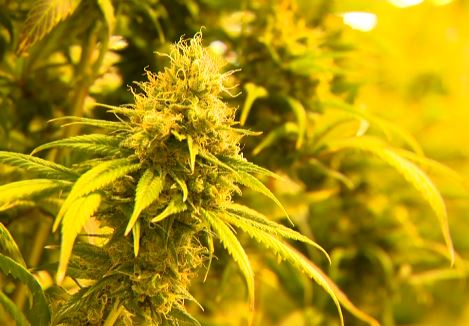City councillors in Winnipeg want to find ways to clamp down on homegrown cannabis in residential areas.

The Standing Policy Committee on Property and Development, Heritage and Downtown Development is recommending the public service come up with detailed options to stem the practice.
“When I first brought this up three years ago it was just starting to get out of hand,” said Coun. Ross Eadie (Mynarski Ward.)
“Now there’s so many houses being bought up and the whole purpose for those houses is to grow medical cannabis.”
Eadie says he has no problem with those who want to grow a handful of plants for their own medicinal use, but says other people are going “overboard” and cultivating several hundred plants.
In some cases, the odour is becoming a nuisance to neighbours, says Eadie, who worries it could also entice thieves.
“That’s why we have industrial areas, like the mushroom plant in Winnipeg, there’s all kinds of smells coming out of these industrial areas,” Eadie says.
“It’s over there, it’s not affecting people’s personal lives.”
A motion, which will go before Executive Policy Committee Wednesday, directs the public service to explore by-law amendments, licensing requirements, or regulations on systems such as electrical or heating, which are necessary for larger-scale production.
Zoning by-laws could be amended to outright prohibit growing weed in residential areas, limit the number of plants, or limit the percentage of a home that can be devoted to growing.

Get breaking National news
A more indirect amendment would target “nuisance odours” or “conditions that pose a health hazard or detriment to the neighbourhood.”

A report at City Hall cites Health Canada statistics, which say the average number of grams of medical cannabis prescribed for daily consumption climbed to 22.4 grams by March 2020.
Health Canada regulations allow for up to five plants to be grown per gram prescribed, and as many as four registrations can be made for a single address, which enables a home to potentially house hundreds of plants.
The Winnipeg Police Service (WPS) says it has received multiple complaints about suspected grow operations in residential neighbourhoods, mainly due to odour, safety-related concerns and the potential for connections to organized crime.
However, the WPS says its hands are tied if it verifies the residence is authorized to produce cannabis through Health Canada.
“If this has been determined, the Winnipeg Police Service has no legal authority to enter the residence to determine the validity of the operation within and (it) essentially becomes a regulatory issue,” a WPS spokesperson wrote in an email.
“In many cases Winnipeg Police Service cannot divulge this information due to the Personal Health Information Act (PHIA).”
However, if the force determines it’s an illegal operation, or there are “immediate life-threatening safety concerns,” such as fire or other emergency situations, officers can take action.
It also directs people with concerns to a Health Canada reporting system.
Manitoba is the only province in Canada where it’s illegal to grow your own cannabis for recreational use.
The motion will go before full council at the end of April.








_848x480_1397405763961.jpg?h=360&w=540&crop=1&quality=70&strip=all)

Comments